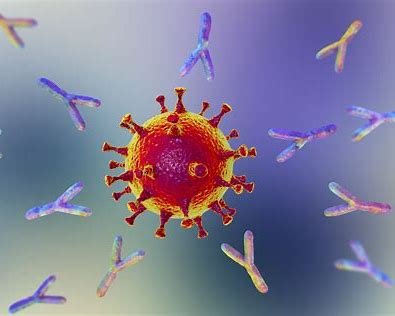I-Mab Announces Multiple Advancements of 4-1BB Bispecific Antibody Portfolio
02 July 2021 | Friday | News

Image Source : Public Domain
- First patient dosed in U.S. phase 1 clinical trial of TJ-CD4B/ABL111 in patients with advanced or metastatic solid tumors
- China sites to join the dose expansion part of the study to accelerate TJ-CD4B/ABL111 development
- Results of TJ-L14B/ABL503 preclinical studies accepted for publication in Journal for ImmunoTherapy of Cancer
TJ-CD4B/ABL111 is the only clinical-stage bispecific antibody that binds to Claudin 18.2 (CLDN18.2)-expressing cancer cells and co-stimulatory molecule 4-1BB on immune cells to elicit a localized and combined immune response against solid tumors. Preclinical studies have demonstrated superior CLDN18.2-dependent immune activation with TJ-CD4B/ABL111 compared to 4-1BB monoclonal antibodies. The anti-tumor activity is achieved locally at the tumor site with no hepatotoxicity or systemic side effects that are commonly seen with 4-1BB monoclonal antibodies when used alone. Studies have also demonstrated a memory response that can resist tumor rechallenge for a long-lasting treatment effect.
A U.S. phase 1 clinical trial of TJ-CD4B/ABL111 in advanced or metastatic solid tumors (NCT04900818) has been initiated with the first patient being dosed on June 29, 2021. The phase 1 clinical study is a multi-center dose escalation and dose expansion study. To accelerate TJ-CD4B/ABL111 development, China sites will join the dose expansion part of the study. Patients with gastric cancer, esophageal adenocarcinoma and pancreatic cancer in China will be enrolled later this year.
TJ-L14B/ABL503 is another novel bispecific antibody uniquely designed to activate 4-1BB signalling in the presence of PD-L1, while simultaneously blocking PD-1/PD-L1 signalling. Preclinical studies have demonstrated superior anti-tumor activity for TJ-L14B/ABL503 compared to equimolar doses of 4-1BB and PD-L1 monoclonal antibodies single agents alone or in combination. The data suggest that TJ-L14B/ABL503 induced anti-tumor response was protective against tumor rechallenge in animal studies. These results have now been accepted for publication by the Journal for ImmunoTherapy of Cancer (JITC), titled "Novel anti-4-1BB X PD-L1 bispecific antibody augments anti-tumor immunity through tumor-directed T-cell activation and checkpoint blockade." A phase 1 clinical trial for TJ-L14B/ABL503 was initiated in the U.S. earlier in April 2021 in patients with locally advanced or metastatic solid tumors (NCT04762641).
"As the next-wave of innovation in immuno-oncology, bispecific antibodies could be a promising solution to cancers that are resistant to the existing standard of care," said Dr. Joan Shen, CEO of I-Mab. "With the rapid development of our bispecific antibody portfolio, we are excited to progress one of the world's first echelon of 4-1BB bispecific antibodies in the clinic."
Most Read
- Innovations In Magnetic Resonance Imaging Introduced By United Imaging
- Management of Relapsed/Refractory Multiple Myeloma
- 2025 Drug Approvals, Decoded: What Every Biopharma Leader Needs to Know
- BioPharma Manufacturing Resilience: Lessons From Capacity Expansion and Supply Chain Resets from 2025
- APAC Biopharma Review 2025: Innovation, Investment, and Influence on the Global Stage
- Top 25 Biotech Innovations Redefining Health And Planet In 2025
- How Health Systems Are Reshaping Drug Adoption, Partner Models, and Market Access in 2026
- The New AI Gold Rush: Western Pharma’s Billion-Dollar Bet on Chinese Biotech
- Single-Use Systems Are Rewiring Biopharma Manufacturing
- The State of Biotech and Life Science Jobs in Asia Pacific – 2025
- Asia-Pacific Leads the Charge: Latest Global BioSupplier Technologies of 2025
- Invisible Threats, Visible Risks: How the Nitrosamine Crisis Reshaped Asia’s Pharmaceutical Quality Landscape
Bio Jobs
- The State of Biotech and Life Science Jobs in Asia Pacific – 2025
- Avantor’s New CEO Ligner Aims to Unlock Global Potential and Deliver Shareholder Value
- AstraZeneca Commits $50 Billion to U.S. Expansion by 2030 in Biggest-Ever Global Investment
- Thermo Fisher, SAMRC, and South Africa’s Department of Science and Innovation Launch CATIR to Nurture Next-Gen Scientists
- Cube Biotech Appoints Former Sartorius CEO Dr. Joachim Kreuzburg to Board of Directors
- FDA’s AI Transition Marks a Turning Point in Drug Review: Industry Faces Pressure to Adapt Amid 20% Workforce Cut
- WuXi XDC Completes Mechanical Build of Singapore Bioconjugate Manufacturing Hub
News
Editor Picks











